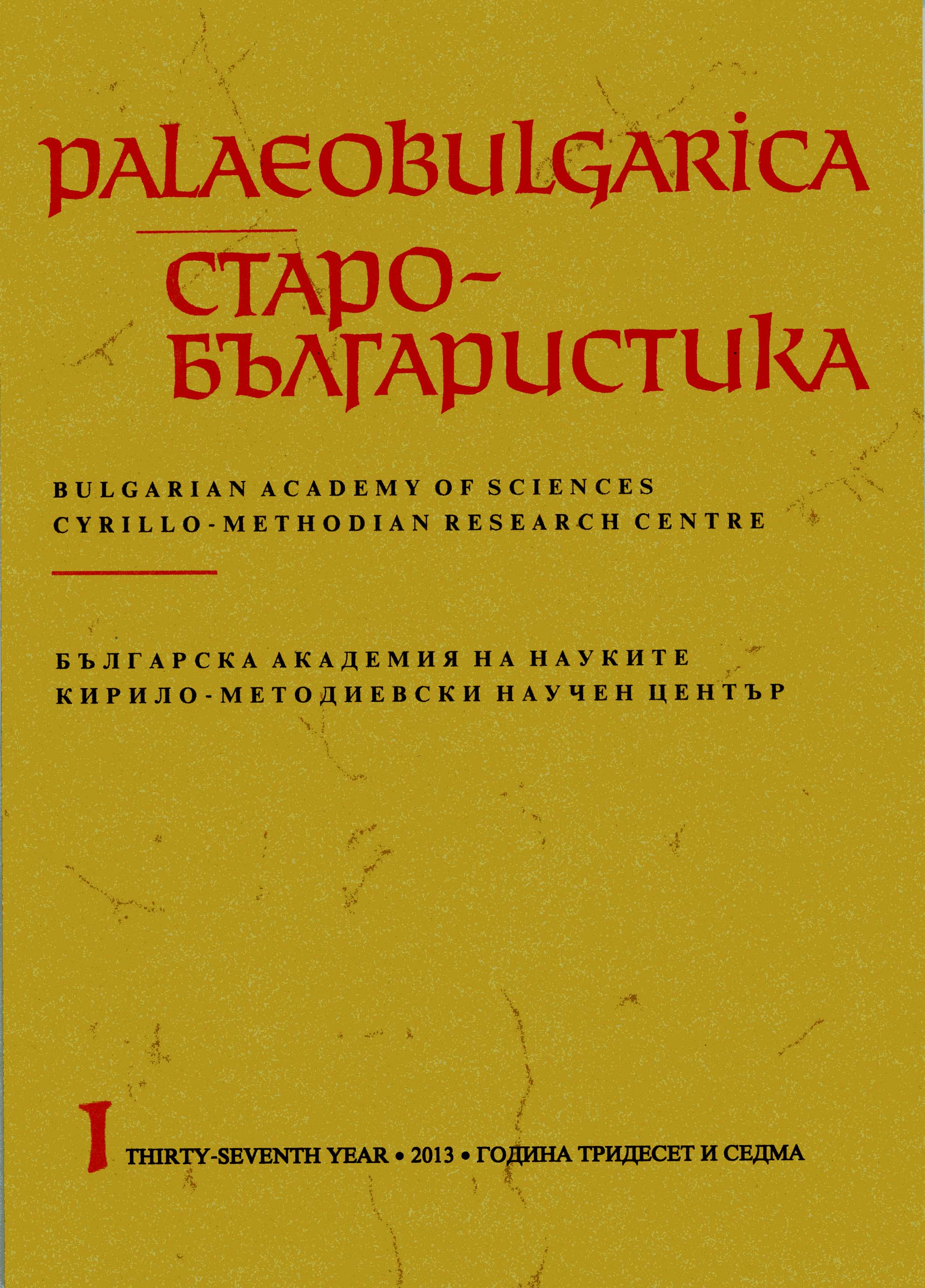Две богословски концепции и техните граматически регистри в преславската книжнина
Two Theological Concepts and Their Registers, Used in the Preslav School
Author(s): Pirinka PenkovaSubject(s): Language and Literature Studies, Bulgarian Literature
Published by: Кирило-Методиевски научен център при Българска академия на науките
Summary/Abstract: A new interpretation of the Preslav revision of the liturgical books and a couple of nonliturgical collections of the ninth and 10th centuries is discussed in the context of two different translation concepts related to two different hermeneutical traditions, namely those of Athanasius of Alexandria and John Damascene, respectively. The shift from the theological concept of Athanasius to the concept of John Damascene was reflected in the two different trends in Preslav translations, usually designated as idiomatic and literal. The theological lexicon emerging from the Cyrillo-Methodian liturgical translations was systematized by Constantine of Preslav and John the Exarch according to two criteria. The first criterion was to shift focus from the conceptual apparatus of the Old Testament to the mild moral of the New Testament. The second criterion was related to the doctrine of Athanasius of Alexandria and the introduction of a theological register as a result of the implementation of linguistic exegesis. John the Exarch and Constantine of Preslav employed linguistic exegesis for the antonymy of'transcendent, divine existence'versus 'natural, non-divine existence, limited in time and space', developing theological doublets for each dimension or using alternative tense forms. The next generation of Preslav translators assumed the theological formula of John Damascene while attempting to introduce theological standardization and harmonization together with their contemporary Byzantine practice.
Journal: PALAEOBULGARICA / СТАРОБЪЛГАРИСТИКА
- Issue Year: 2013
- Issue No: 1
- Page Range: 15-29
- Page Count: 15
- Language: Bulgarian
- Content File-PDF

